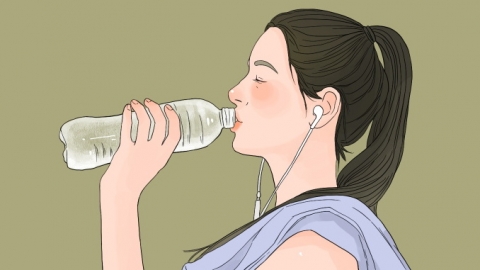How to Prevent Dehydration from Norovirus
Generally, after being infected with norovirus, dehydration can be prevented through appropriate hydration, improved dietary habits, oral rehydration salts, intravenous rehydration, and seeking timely medical attention. The details are as follows:

1. Appropriate Hydration
During norovirus infection, severe vomiting or diarrhea may cause excessive loss of body fluids, leading to dehydration. Therefore, dehydration can be prevented by replenishing fluids, such as drinking an appropriate amount of warm water or lightly salted water.
2. Improve Dietary Habits
In terms of diet, it is recommended to choose foods with higher water content or soups, such as congee, rice porridge, chicken soup, fish soup, vegetable soup, and rice water. However, fat intake should be limited to avoid increasing gastrointestinal burden. Additionally, consumption of spicy and irritating foods, such as beer and coffee, should be reduced.
3. Oral Rehydration Salts
If symptoms do not improve after fluid replacement, oral rehydration salts can be used, such as Oral Rehydration Salt Powder (I), Oral Rehydration Salt Powder (II), and Oral Rehydration Salt Powder (III), under a doctor's guidance. These rehydration salts contain appropriate amounts of sugar, salt, and alkali, which can replenish electrolytes and fluids and alleviate discomfort symptoms.
4. Intravenous Rehydration
When dehydration is severe and cannot be relieved by oral rehydration salts, intravenous rehydration can be used for treatment. For example, medications such as Isomaltose Injection, Dextran 20 Sodium Chloride Injection, and Potassium Chloride Sodium Chloride Injection may be administered according to medical advice.
5. Seek Timely Medical Attention
If dehydration worsens and is accompanied by other symptoms such as lethargy, sunken eyes, and dry skin, timely medical attention should be sought. Further evaluation of the condition should be conducted under a doctor's guidance, followed by appropriate treatment measures. Hospitalization for observation may be necessary in some cases.
In conclusion, patients should choose appropriate methods based on the severity of dehydration. However, attention should be paid to the dosage of fluid replacement to avoid excessive intake that may cause discomfort.






